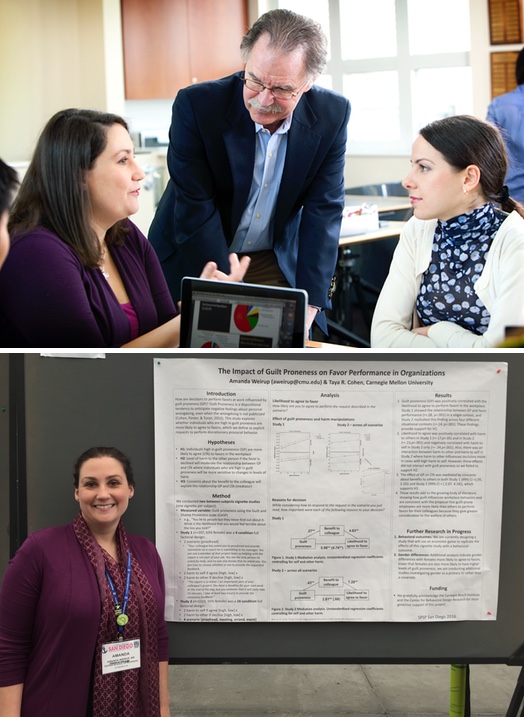
Research
While working in consulting, I observed the substantial control that employees can have over their work activities. Job descriptions are often broadly defined, and companies place considerable emphasis on personal initiative, empowerment, and self-management. In this complex and ambiguous environment, employees are forced to make decisions about how to balance the many divergent demands on their time. One such demand comes in the form of favors, tasks that are outside of one’s official responsibilities and help others rather than oneself. How do we respond to requests for favors? How do we balance our dedication to our own work with the needs of others and our organization? How do our responses influence workplace outcomes, such as equitable work distribution, job performance, and job satisfaction? My research searches for answers to these questions by examining how people think, feel, and act when confronted with favor requests.
To investigate favors, I employ multiple methods blending quantitative and qualitative data obtained in the laboratory and in the field. For example, I have gathered data on favor requests using interviews, diary methods, large-scale surveys, and laboratory and field experiments. Using methodologically distinct approaches provides triangulation and convergent validity, which strengthens confidence in the conclusions drawn in my studies.
Working Papers/Research in Progress
- Will you do me a favor? Responding to favor requests in the workplace (with Laurie Weingart and Taya Cohen) Under review.
- Forecasting the emotional consequences of favor performance (with Linda Babcock)
- Gender differences in responding to favors (with Linda Babcock & Taya Cohen)
- The impact of guilt proneness on the performance of favors in organizations (with Taya Cohen)